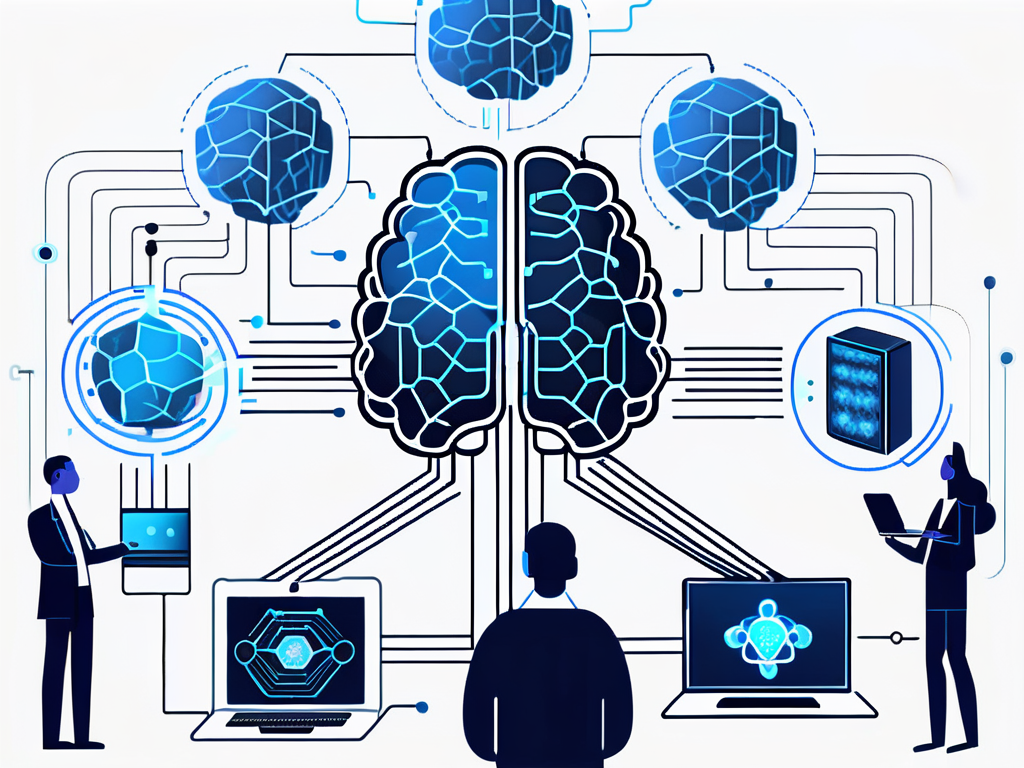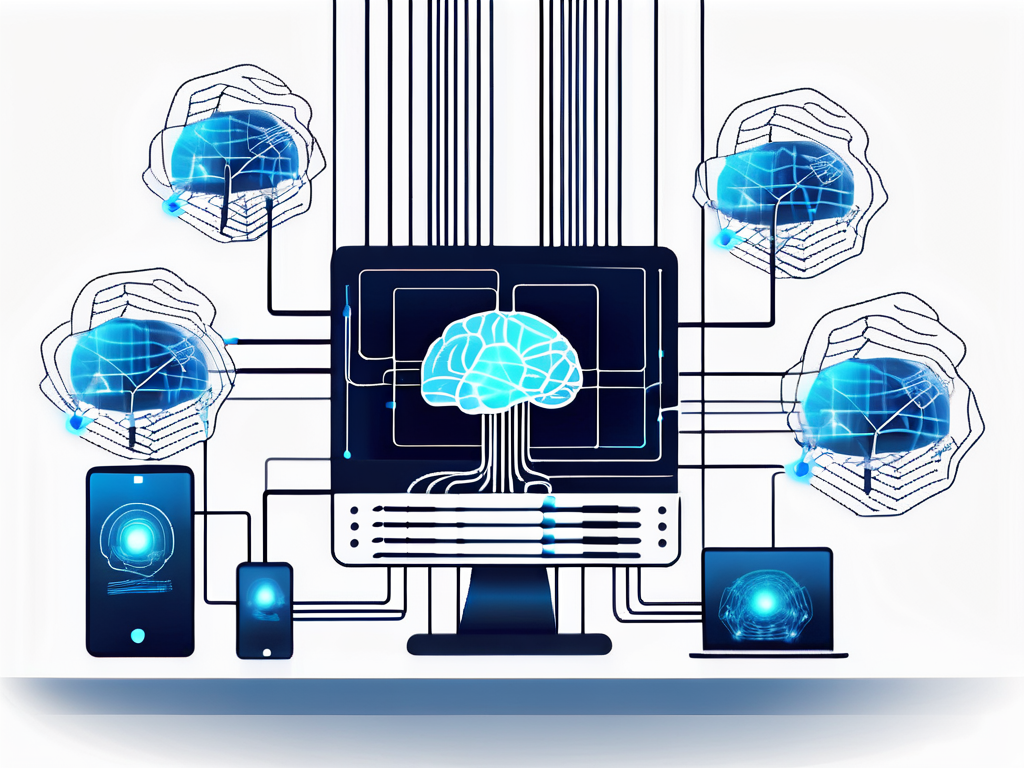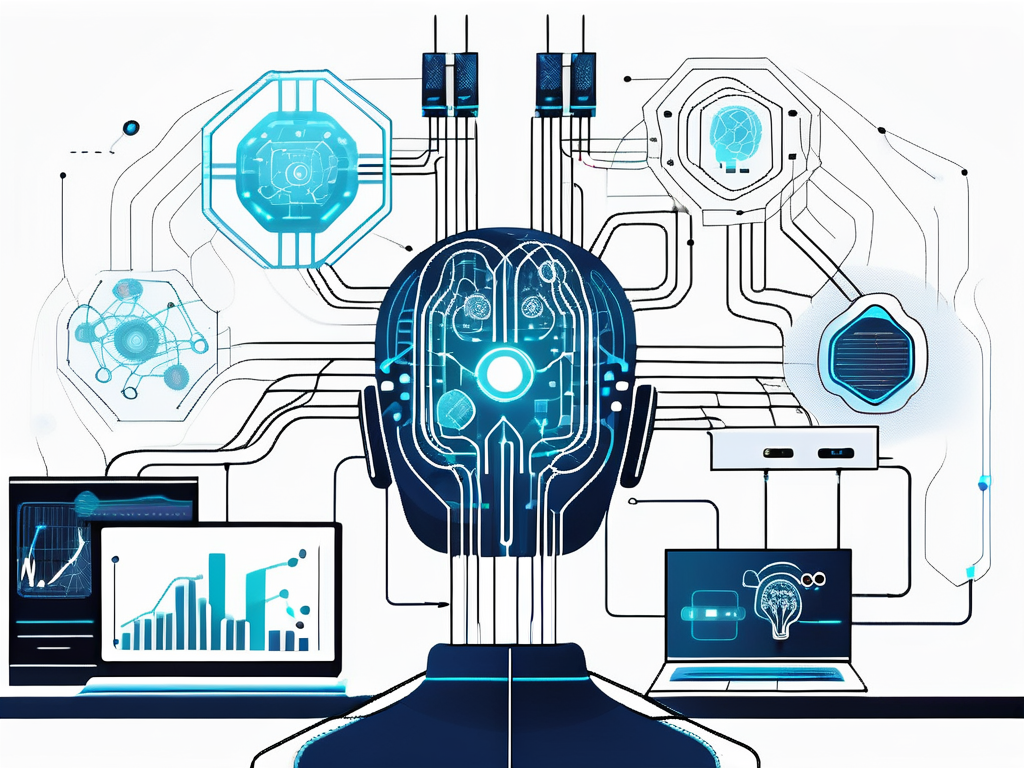Artificial Intelligence (AI) and Data Science have revolutionized the world of modern technology, opening up opportunities and possibilities that were once unimaginable. Understanding the concepts of AI and Data Science is crucial in comprehending their impact on technology and society as a whole. This article will explore the fundamental aspects of AI and Data Science, examine their intersection, discuss their influence on everyday technology, delve into the future advancements, and address the ethical implications associated with their integration.
Understanding AI and Data Science
AI, often referred to as machine intelligence, is a subfield of computer science that focuses on creating intelligent machines that can mimic human behavior and perform tasks that usually require human intelligence. It encompasses various sub-domains such as natural language processing, machine learning, and computer vision.
Data Science, on the other hand, involves the extraction of actionable insights and knowledge from large datasets using scientific methods, processes, algorithms, and systems. It combines elements of mathematics, statistics, and computer science to analyze, interpret, and visualize complex data.
Defining Artificial Intelligence
Artificial Intelligence can be defined as the capability of machines to exhibit intelligent behavior, allowing them to understand, learn, reason, and make decisions autonomously. This concept dates back to the mid-20th century when computer scientists began exploring the possibility of creating machines that could simulate human intelligence.
The Role of Data Science in Technology
Data Science plays a crucial role in technology by enabling organizations to extract valuable insights from vast amounts of data. It aids in decision-making processes, enhances business operations, and facilitates the development of intelligent systems. Through techniques like data mining, statistical modeling, and predictive analytics, Data Science empowers technology by providing actionable information.
One fascinating aspect of AI is its ability to revolutionize various industries. For example, in the healthcare sector, AI-powered systems can analyze medical records, identify patterns, and assist doctors in diagnosing diseases. This not only saves time but also improves accuracy, leading to better patient outcomes. Similarly, in the finance industry, AI algorithms can analyze market trends, predict stock prices, and automate trading processes, making investment decisions more efficient and profitable.
Data Science, on the other hand, is not limited to a specific industry. Its applications are diverse and can be found in fields such as marketing, transportation, energy, and entertainment. For instance, in the marketing industry, data scientists use customer data to create personalized marketing campaigns, target specific demographics, and optimize advertising strategies. In the transportation sector, data science is used to analyze traffic patterns, optimize routes, and improve logistics operations.
Furthermore, the advancements in AI and Data Science have led to the emergence of innovative technologies such as self-driving cars, virtual assistants, and recommendation systems. These technologies rely on complex algorithms and machine learning models to understand user preferences, make intelligent decisions, and provide personalized experiences. As AI and Data Science continue to evolve, we can expect even more groundbreaking applications and advancements in various fields.
The Intersection of AI and Data Science
AI and Data Science are inherently interrelated, as AI heavily relies on the analysis and interpretation of data. Data Science provides the necessary tools and techniques to analyze and derive insights from data, which drives the development of intelligent algorithms and models. In turn, AI technologies use these models to make informed decisions, tackle complex problems, and improve overall efficiency.

One fascinating aspect of the intersection between AI and Data Science is the concept of machine learning. Machine learning is a subset of AI that focuses on developing algorithms capable of learning from and making predictions or decisions based on data. Data Science plays a crucial role in machine learning by providing the foundation for training datasets, feature engineering, and model evaluation.
How AI and Data Science Complement Each Other
In the realm of technology, AI and Data Science complement each other in numerous ways. AI algorithms require vast amounts of data to train and improve their performance. Data Science ensures that this data is processed, cleansed, and transformed into a suitable format for AI models. Furthermore, Data Science allows AI systems to continuously learn and adapt from new data, enhancing their capabilities over time.
Another key aspect of their complementarity is the ethical considerations surrounding AI and data usage. Data Science principles guide the ethical collection, storage, and utilization of data, ensuring that AI applications operate within legal and moral boundaries. This ethical framework is essential for building trust in AI systems and promoting responsible data-driven decision-making.
The Convergence of AI and Data Science in Tech Innovations
The convergence of AI and Data Science has paved the way for groundbreaking technological advancements. AI-driven applications are now capable of performing complex tasks such as natural language processing, computer vision, and autonomous decision-making. Through the power of Data Science, these AI systems can process immense amounts of data in real-time, resulting in more accurate and efficient outcomes.
Moreover, the collaboration between AI and Data Science has led to the development of predictive analytics models that can forecast trends, identify patterns, and optimize business processes. These predictive capabilities empower organizations to make data-driven decisions, anticipate market changes, and gain a competitive edge in today’s fast-paced digital landscape.
AI and Data Science in Everyday Technology
The integration of AI and Data Science has permeated various aspects of everyday technology, enriching user experiences and improving overall efficiency. From consumer electronics to social media platforms, the impact of AI and Data Science is evident across multiple domains.

Artificial Intelligence (AI) and Data Science are revolutionizing the way we interact with technology on a daily basis. These cutting-edge technologies are not only shaping the future but also enhancing the present, making our devices smarter, more intuitive, and personalized to our needs.
AI and Data Science in Consumer Electronics
Consumer electronics, such as smartphones, smart speakers, and wearable devices, have witnessed significant transformations due to AI and Data Science integration. AI-powered virtual assistants, personalized recommendations, and facial recognition technologies have become commonplace, enhancing convenience and customization for users.
For instance, AI algorithms in smartphones can predict user behavior and preferences, offering personalized suggestions for apps, content, and even settings. Smart speakers powered by AI can understand natural language commands, making interactions more seamless and intuitive. Wearable devices equipped with Data Science capabilities can track and analyze health metrics, providing valuable insights for users to improve their well-being.
The Role of AI and Data Science in Social Media Platforms
Social media platforms heavily leverage AI and Data Science to deliver tailored content, identify trends, and analyze user behavior. AI algorithms analyze massive amounts of data, including user preferences and engagement patterns, to curate personalized feeds, recommend relevant content, and detect and prevent malicious activities.
Moreover, AI and Data Science play a crucial role in content moderation on social media platforms, helping to identify and filter out inappropriate or harmful content. These technologies also enable targeted advertising based on user interests and behavior, creating a more personalized experience for users while driving revenue for the platforms.
The Future of AI and Data Science in Technology
The future of AI and Data Science in technology holds great promise and boundless opportunities for innovation. Advancements in these fields are set to transform numerous industries and revolutionize the way we interact with technology.

Artificial Intelligence (AI) and Data Science are at the forefront of technological innovation, driving breakthroughs that were once thought to be the stuff of science fiction. The convergence of big data analytics, machine learning, and advanced algorithms is reshaping the digital landscape, paving the way for smarter, more efficient systems that can learn, adapt, and make decisions autonomously.
Predictions for AI and Data Science Advancements
Experts predict that AI and Data Science will continue to evolve, leading to significant breakthroughs in areas including healthcare, autonomous vehicles, and smart cities. AI-driven healthcare systems will provide more accurate diagnoses and personalized treatments, while autonomous vehicles will become safer and more efficient, thanks to advanced machine learning algorithms.
In the realm of smart cities, AI and Data Science are poised to revolutionize urban living by optimizing resource management, improving transportation systems, and enhancing overall quality of life. From predictive maintenance of critical infrastructure to real-time traffic management, the possibilities are endless as cities harness the power of data-driven insights to create more sustainable and resilient environments.
The Potential Risks and Challenges of AI and Data Science Integration
As AI and Data Science continue to advance, it is essential to address potential risks and challenges associated with their integration. Privacy concerns, algorithmic biases, and the ethical implications of AI decision-making are some of the key challenges that need to be carefully managed. Regulation and ethical frameworks will play a vital role in ensuring responsible and transparent use of AI and Data Science technologies.
Furthermore, the rapid pace of technological advancement raises questions about the future of work and the potential impact on employment. While AI and automation have the potential to streamline processes and boost productivity, there are concerns about job displacement and the need for upskilling the workforce to adapt to a rapidly changing technological landscape. Balancing the benefits of AI and Data Science with the social and economic implications will be crucial in shaping a future where technology serves humanity in a positive and sustainable manner.
The Ethical Implications of AI and Data Science in Technology
With great power comes great responsibility, and the ethical implications of AI and Data Science in technology cannot be understated. As AI systems become more pervasive and influential, it is crucial to address the ethical dimensions associated with their deployment.
Privacy Concerns in the Age of AI and Data Science
The vast amount of data collected and analyzed by AI systems raises concerns about privacy and data protection. Ensuring that personal information is handled ethically and securely becomes increasingly important as technology continues to advance. Striking a balance between innovation and privacy rights will be a key challenge faced in the age of AI and Data Science.
Privacy is a fundamental human right, and as AI and Data Science become more integrated into our daily lives, it is essential to establish robust safeguards to protect individuals’ privacy. This includes implementing strong encryption methods, adopting privacy-by-design principles, and providing individuals with transparent control over their personal data.
The Role of Regulation in AI and Data Science
Given the potential risks and challenges associated with AI and Data Science, the role of regulation becomes crucial in maintaining ethical standards. Policymakers and regulatory bodies must develop frameworks that address issues such as transparency, accountability, and fairness in AI decision-making. Striving for a harmonious coexistence between technology and the ethical fabric of society will guide the responsible deployment of AI and Data Science.
Regulation should not stifle innovation but rather foster an environment where AI and Data Science can flourish while upholding ethical principles. It is important to establish clear guidelines for the responsible use of AI, ensuring that algorithms are transparent, explainable, and free from bias. Additionally, creating mechanisms for independent audits and oversight can help maintain accountability and trust in AI systems.
In conclusion, AI and Data Science have had a profound impact on modern technology, transforming various industries and shaping the way we interact with everyday devices. The intersection of AI and Data Science has opened up new possibilities for innovation, while also presenting unique challenges that must be addressed. As technology continues to evolve, it is essential to navigate the ethical landscape and ensure that AI and Data Science are harnessed responsibly to benefit society as a whole.

Leave a Reply